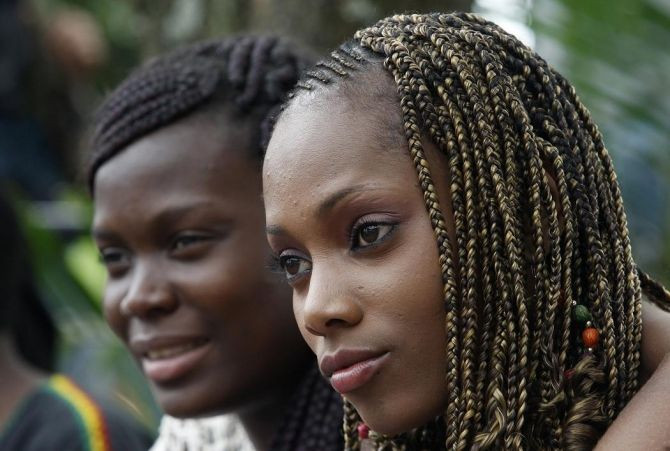HIV Rates 5 Times Higher in Black Women from Some U.S. Cities than Thought

The HIV infection rates among black women living in some cities in the U.S. are five times higher than previous estimates, according to a new study which also revealed that the U.S. HIV rates for black women in the six observed cities were similar to rates observed in several African countries.
The findings, presented Thursday at the 19th Conference of Retroviruses and Opportunistic Infections, highlights the disparity between HIV transmission within specific racial groups, particularly black women who are significantly more affected by HIV and AIDS than women of any other ethnicity in the United States.
"We have known that black women in the US are disproportionately impacted by HIV, however, the magnitude of this disparity in areas hardest hit by the HIV epidemic underscores the gravity of the problem," Study Chair Dr. Sally Hodder of the University of Medicine and Dentistry of New Jersey-New Jersey Medical School said in a statement released on Thursday.
The study authors also said that these shocking findings further acknowledges that HIV has yet to be eradicated, and has even been somewhat forgotten.
The research was based on data from the The Women's HIV Seroincidence (ISIS) Study, which consisted of 2,099 at-risk women without a prior positive HIV test between the ages of 18 to 44 years from HIV ‘hot spots’ including Baltimore, Atlanta, Raleigh-Durham, N.C., Washington, D.C., Newark and New York City. Researchers said that 88 of the participants were black and 12 percent were Hispanic.
"At current rates, nearly 1 in 30 African-American women will be diagnosed with HIV in their lifetimes," said Kevin Fenton, M.D., director of Centers for Disease Control and Prevention's National Center for HIV/AIDS, Viral Hepatitis, STD and TB Prevention said in a statement released by the agency on Thursday regarding a new campaign to increase HIV awareness. "To help reduce this toll we are working to remind black women that they have the power to learn their HIV status, protect themselves from this disease, and take charge of their health."
The study found that while women make up only a quarter of new HIV infections in the U.S., 66 percent of those infections have occurred among black women even though black women only make up 14 percent of the U.S. female population.
What’s more, researchers found that the death rate of black women with HIV is 15 times higher than the observed rate for HIV-infected white women.
Researchers said despite 30 years of national prevention efforts, new HIV infections are still happening at rates that need to be addressed.
"This disease is alive and well in this country," said Dr. Carlos Del Rio, principal investigator for the Atlanta area of the study and professor of medicine and infectious disease at Emory University School of Medicine in Atlanta, according to ABC news. "But this epidemic is the face of the forgotten people."
The findings also showed 1.5 percent of the women in the study had been previously unaware of their HIV status, underscoring the need to increase awareness of HIV risk and further expansion of novel HIV testing and prevention efforts in high prevalence areas of the country.
"The study provides convincing evidence that more effort is needed to develop effective prevention strategies for high risk populations in order to stem the HIV epidemic in the US," said Principal Investigator Sten Vermund of Vanderbilt University in a statement.
The CDC announced on Thursday that they will launch a new campaign ‘Take Charge’ on National Women and Girls HIV/AIDS Awareness Day on March 10 in 10 U.S. cities where black women are especially vulnerable to the disease.
The community outreach campaign aims to increase HIV testing and awareness among black women, and encourages black women to talk openly with their partners about HIV, insist on safe sex, and to bring the same messages to other women in other social settings.
"We hope to extend the reach of this campaign to multiple cities throughout the nation, help empower many more women to take control of their health, and help break the silence about HIV in their communities," said Jonathan Mermin, M.D., director of CDC's Division of HIV/AIDS Prevention in the CDC statement.
"This campaign is just one part of the solution," said Donna Hubbard McCree, associate director for health equity at DHAP. "All of us have a role to play in stopping the spread of HIV among black women – by talking to our sisters, daughters, husbands, and boyfriends about how to protect ourselves against HIV and the importance of getting tested; by speaking out against stigma; and by tackling the social inequities that place so many of us at risk for HIV."



























